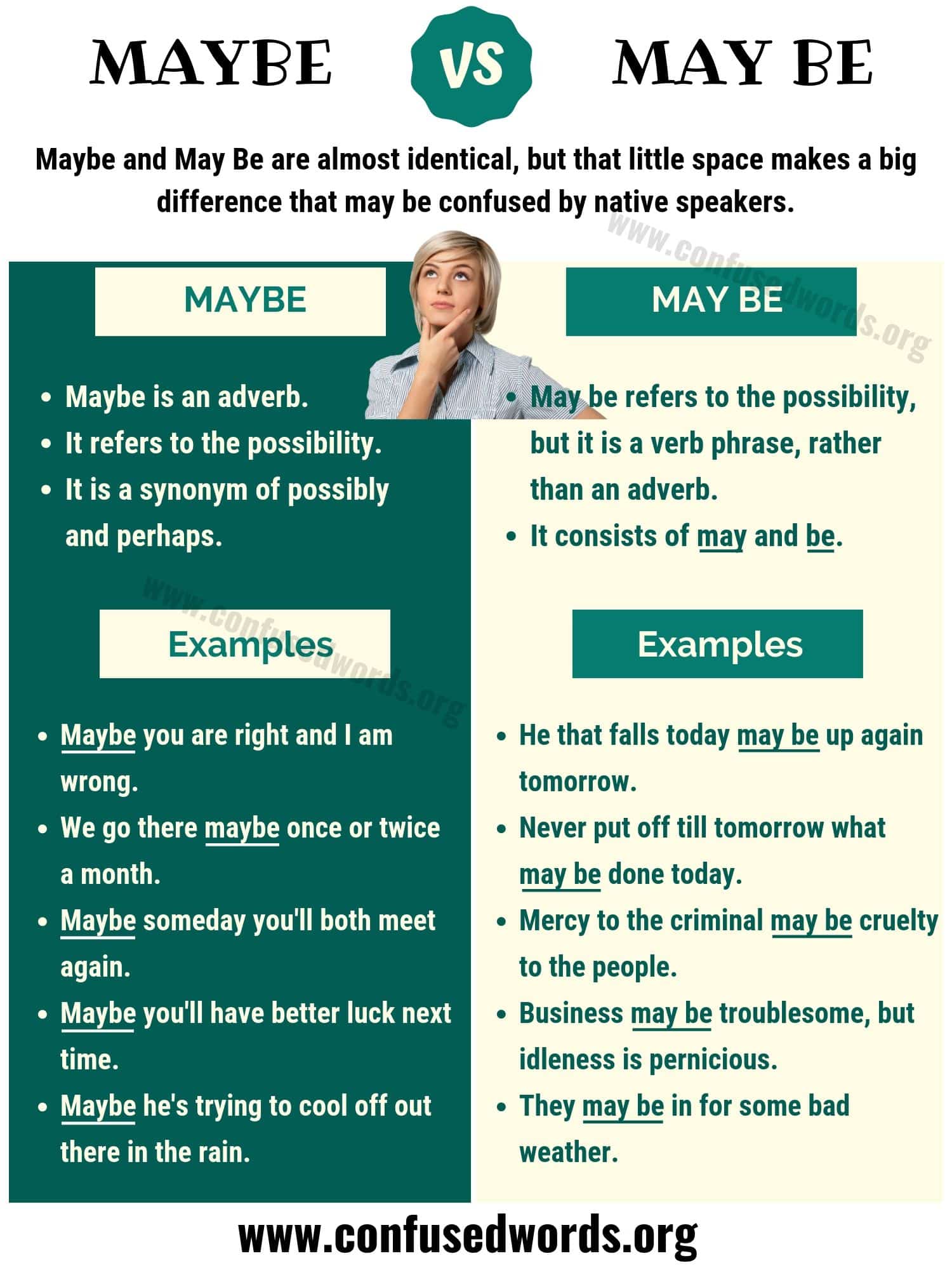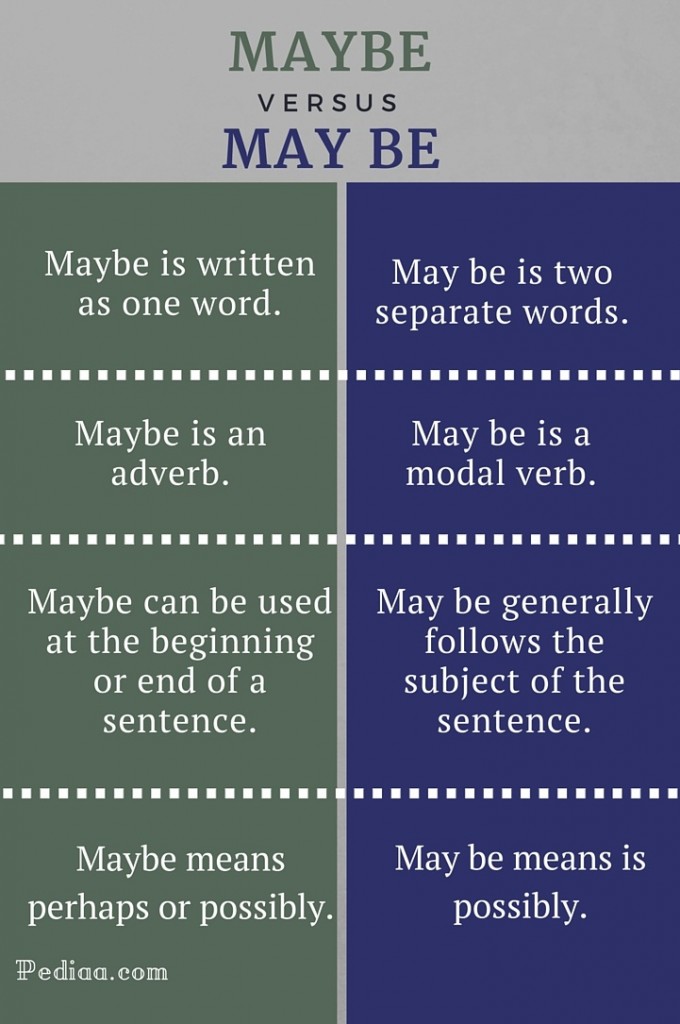Understanding the Difference Between Maybe and May Be
The Basics
One of the most common mistakes made by English learners is confusing the words “maybe” and “may be”. While they seem quite similar, there is an important difference in their meanings and usages.
The adverb maybe is synonymous with “perhaps”. It expresses uncertainty or indicates a possibility. For example:
“Maybe it will rain tomorrow.” “I’m not sure if I can come to your party. Maybe?”
Describing Possibility
On the other hand, “may be” is used to describe something as
potentially possibleorcould potentially bethe case. It refers to describing possibilites rather than speculating. For example: “Thispolicy change may beunpopular with voters.” “Burgers may beon the lunch menu today.”Understanding the Grammar
Grammatically, “may” is a modal verb that denotes
permission, ability or possibility. When used with “be”, it forms the construction “may be” to describe something as having a potential to be true. For instance: “Hemay belate for work today.” “This restaurant may bethe best in town.”

Substituting Clearly
To understand the difference clearly, try substituting “perhaps” for “maybe” and “could be” or “might be” for “may be” in sentences. If the meaning remains the same, the word choice is correct. For example:
“Perhaps it will rain today.” = “Maybe it will rain today.” “This
policy change might beunpopular.” = “Thispolicy change may beunpopular.”Common Mistakes to Avoid
One very common mistake is using “may be” when “maybe” is the appropriate choice. This often happens when speculating or expressing uncertainty. For example: Incorrect: “I’m not sure if I can come to your party.
May be?” Correct: “I’m not sure if I can come to your party.Maybe?” Another mistake is using “maybe” instead of “may be” when something is being described as a potential possibility rather than an unsure speculation. For example: Incorrect: “Maybehe lost his keys.”
Correct: “He may have losthis keys.” By understanding the difference in meaning and applying the substitution test, you can choose the right word and avoid these all-too-common errors. Mastering when to use “maybe” versus “may be” will greatly improve your English proficiency.Using Context Clues to Discern Meaning
When first encountering these words, it can be difficult to determine the appropriate usage based solely on definition. Looking at clues from the full context or sentence is very helpful. For instance, if the subject is directly followed by a form of “to be”, it likely calls for “may be”. “The real culprit
may belurking nearby.” Conversely, if an action could potentially happen in the future, “maybe” is generally more suitable. “Maybeit will rain tomorrow.” Adverbs or phrases like “perhaps”, “possibly” or “who knows” also indicatemaybeshould be used. “I’m not sure -maybewe’ll reschedule.” While grammatical rules help, analyzing how the words are used within surrounding context yields the clearest understanding of their correct application in any given situation.Using Substitution and Paraphrasing for Clarity
As a final strategy, try rephrasing the statement using near-synonyms to validate the intended meaning remains clear and accurate. For “maybe”, substituting “perhaps” or using a questioning tone often works well. For “may be”, swapping in “could potentially be” or “might possibly be” fits the sense of describing an option. For example: “It
may betoo expensive.” Rephrased: “Itcould potentially betoo expensive.” “Imaybeleft my wallet at home.”
Rephrased: “PerhapsI left my wallet at home.” With practice employing multiple techniques together - definitions, context, substitutions and paraphrases - the true nuances of “maybe” versus “may be” can be readily and appropriately applied. Mastering this seemingly small grammatical detail will result in much more fluent and precisely conveyed English communications. Take the time to thoroughly understand the distinction - it will serve your language development well.
